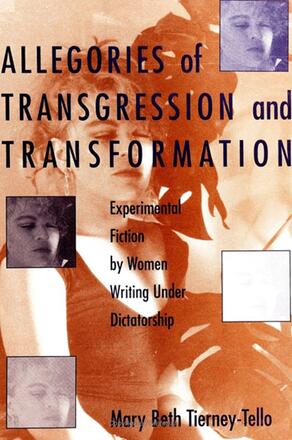
Allegories of Transgression and Transformation
Experimental Fiction by Women Writing Under Dictatorship
Alternative formats available from:
Examines the dynamic relationship between authority and gender in contemporary, experimental narrative works by four Latin American women writers: Diamela Eltit of Chile, Nelida Pinon of Brazil, Reina Roffe of Argentina, and Cristina Peri Rossi of Uruguay.
Description
At the nexus of politics and sexuality, Allegories of Transgression and Transformation examines how women's writing produced in the wake of authoritarian regimes in several South American countries simultaneously challenges both the effects of dictatorship and restrictive gender codes. The author examines the experimental fictions of four contemporary Latin American writers: Diamela Eltit of Chile, Nelida Pinon of Brazil, Reina Roffe of Argentina, and Cristina Peri Rossi of Uruguay. Tierney-Tello begins her study by exploring the particular relationships among authoritarian political oppression, restrictive gender codes, and the practice of writing. Then, through close readings that draw on feminist, psychoanalytic, and socio-political literary theories, she shows how each of the selected narratives illustrates different aspects of the effects of dictatorship, while also striving to develop new means of articulating gender and feminine sexuality. Throughout, Allegories of Transgression and Transformation suggests how the use of allegory allows these texts to question socio-political, genderic, and textual forms of authority and to trace an/other story.
Mary Beth Tierney-Tello is Assistant Professor of Hispanic Studies at Wheaton College.
Reviews
"I believe this is an important contribution to the field of Latin American literature especially in the way in which political thinking and ideology are a part of the Latin American women's literary imagination. I strongly believe that the dissemination of this work is of great significance to the academic communities. " — Marjorie Agosin, Wellesley College
"This book contains brilliant analyses of extremely complex texts in the context of political and social exigencies in Latin America and in relation to issues of gender difference and sexuality. It is astute about gender, and about literary theory (particularly theory of allegory). It is both sophisticated in its analysis and written in an accessible manner. Outstanding. " — Amy Kaminsky, University of Minnesota